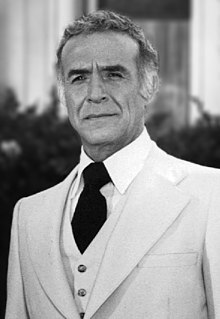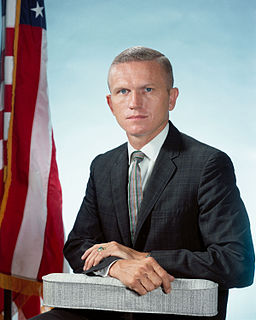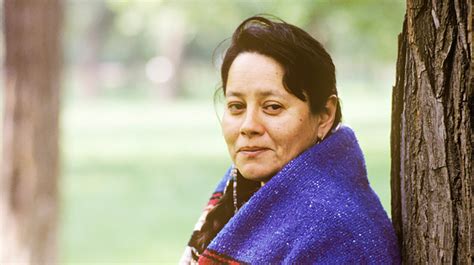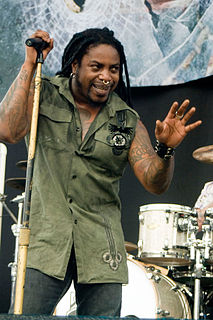A Quote by Richard Wright
Each day when you see us black folk upon the dusty land of your farm or upon the hard pavement of your city streets, you usually take it for granted and think you know us, but our history is far stranger than you suspect, and we are not what we seem.
Related Quotes
If your experiences suggest to you that poor black folk are lazy, then you must be true to those experiences - except, however, as your experiences are pressured by empirical investigation of complex phenomena. I suspect that even when you control for variables of individual laziness, you'll see that what you see before you masses of black poor people unwilling to work hard to get better will not be as simply concluded as you might at first believe. Continue your good work.
I promise that if you will keep your journals and records, they will indeed be a source of great inspiration to your families, to your children, your grandchildren, and others, on through the generations. Each of us is important to those who are near and dear to us and as our posterity reads of our life's experiences, they, too, will come to know and love us. And in that glorious day when our families are together in the eternities, we will already be acquainted.
Give us, O God, the vision which can see Your love in the world in spite of human failure. Give us the faith to trust Your goodness in spite of our ignorance and weakness. Give us the knowledge that we may continue to pray with understanding hearts. And show us what each one of us can do to set forward the coming of the day of universal peace.
Emotions are far more contagious than any disease. A smile or a panic will spread through a group of people far faster than any virus ever could. When you walk into the office or a negotiation, then, wash your bad mood away before you see us. Don't cough on us, don't sneeze on us, sure, but don't bring your grouchiness, your skepticism or your fear in here either. It might spread.
I think history is only ever invisible when it abets your sense of self, your desires, your ambitions, when it carries your life along in a kind of frictionless way. History is never invisible, finally, though some people seem to work very hard to be willfully blind. That's too harsh, or too self-righteous: none of us sees history fully; none of us is adequately aware of how the arrangements of the present moment foreclose the possibilities of others to fully live their only lives.
A line will take us hours maybe; / Yet if it does not seem a moment's thought, / Our stitching and unstitching has been naught... Better go down upon your marrow-bones / And scrub a kitchen pavement, or break stones... For to articulate sweet sounds together / Is to work harder than all these, and yet / Be thought an idler by the noisy set.
There is not a history of black intellectuals being allied with dominant forces to hold white people in social and cultural subordination for a few centuries. Second, the "our" of black folk has always been far more inclusive that the "our" of white folk. For instance, there would have hardly been a need for "black" churches if "white" churches had meant their "our" for everybody - and not just white folk. But "our" black churches have always been open to all who would join. The same with white society at every level.
We, as a band, love each other. We're brothers. So we fight. Somebody will call somebody else a douchebag. At the end of the day, we look at how far we've come and realize it would be foolish for us to ever take this for granted. We have a family. And not just a family at home, the family that has grown up with us and supported us through the years. We can't let them down.
Today the thing I find myself thinking about the most is our landscape...I think it's something a lot of us take for granted; for many of us Australia is just there but how many of us have really seen it, have seen Kakadu or Kings Canyon? I know I hope to at some stage, to see Uluru at sunset and the ancient art in the Abrakurrie caves. I think it's our landscape which defines our identity and it's what I'm most grateful for.
My take is that there's two ways to approach history. You sit in your armchair and you watch it on the news and you return to your PlayStation. Or you get out in the streets and you make it. Like, when those Supreme Court justices, you know, legalize desegregation, it wasn't due to their infinite wisdom. It's because people whose names you do not read about in history books, people whose faces you will never see, were the ones who struggled and sacrificed, sometimes gave their lives, to make this country a more equal one. When, it's like those people don't make history, it's us.
Come to us and quackle and quank. Relieve us of our stirrings With your fangs so sharp and bright Take this blood that's always purring. Through our hollow bones it flows To each feather and downy fluff. Quell the terrible, horrid urge that so often prinkles us, Still our dreams, make slow our thoughts Let tranquillity flood our veins. Come to us and drink your fill So we might end our pains. - The Owls at St. Aegolius calling to the bats



































